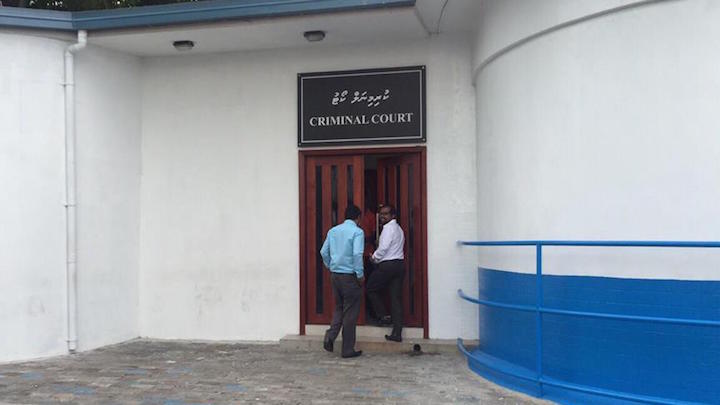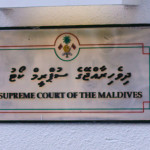State institutions and defence lawyers have welcomed the landmark criminal procedures law that came into force on Monday.
The Attorney General’s office said the law was “much needed to place the Maldives justice system on the same footings as developed countries,” and advised the relevant institutions to implement the changes necessary to migrate to Criminal Procedure Act and enforce the law.
“The Criminal Procedures Act is the most modern law passed in the Maldives and it will bring significant changes to criminal justice system,” the AG office said in a statement.
“The government took 10 years to prepare this bill and on this occasion we would like to thank all those involved”.
The Criminal Procedures Act was passed in April last year but the ruling party-dominated parliament postponed the enactment of the law in November contending that more time was needed to train law enforcement officers, prosecutor and judges.
The law lays out detailed processes and stringent rules for arrest, investigation, and prosecution. It will also introduce deadlines to conclude investigations and trials.
Ahmed Thaufeeq, the Prosecutor General’s spokesman, said the office is fully prepared for the law and welcomed the “modern changes” it has introduced.
“Unlike before a time period is given to press a criminal charge. This is a very important change. Also now we can come into agreement with the accused if he or she accepts the charges which would result in a lesser penalty,” he said.
The law will make the work of prosecutors much easier, he added.
Superintendent Ahmed Shifan, the police spokesman, said awareness sessions have been conducted for almost all police officers about the new law.
“This is a change welcomed by the police and we believe the public too. Criminal Procedure Act is a modern bill which we believe will bring good changes,” he said.
The police have also made suggestions to revise the law “to make it even more perfect,” he noted.
In mid-June, the government proposed more than 90 amendments to the law, including a controversial provision to authorise law enforcement bodies to search public places without a court warrant. But the amendment bill was withdrawn after it divided opinion among lawmakers of the ruling Progressive Party of Maldives with some complaining that the changes were proposed without consultation.
Defence lawyers have also welcomed the enforcement of the criminal procedures law.
A lawyer who chose to remain anonymous told the Maldives Independent that one of the most important changes would be the law’s governance of the process of issuing court orders.
“Before this, one judge can issue all the warrants from a court as we saw from the criminal court. Now with this bill judges have to be rotated and no one judge can issue warrants consecutive days,” he said.
Ahmed Mahfooz Saeed, a prominent defence lawyer, suggested that introducing a timeframe for investigating cases and pressing charges would be a significant improvement.
“People have been tried five years after the alleged crime and investigation continues for months and in some cases even years. This will come to a stop with new law,” he said.
“The Criminal Procedure Act governs everything starting from the moment a person is accused to the end of his sentence and this is very important in Maldives.”
Mahfooz, however, cast doubt over the capability of the police to enforce the law.
“I know awareness sessions have been going on. But I doubt the capability of police because now also they struggle to understand most of the criminal procedures,” he said.





















